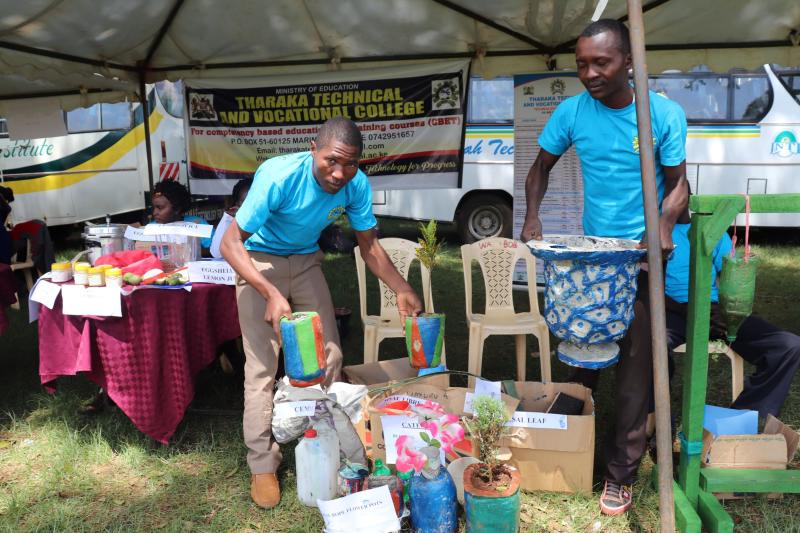×
The Standard e-Paper
Smart Minds Choose Us

An array of innovations and inventions were showcased at an exhibition that brought together 31 technical institutions from the Mt Kenya region.
They ranged from simple ones such as an eggs incubator made from a recycled water bottle to a more complex solar powered, cell phone-operated miniature smart car that caught the attention of spectators as it circled the exhibition area.